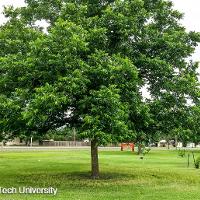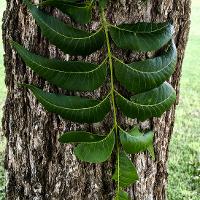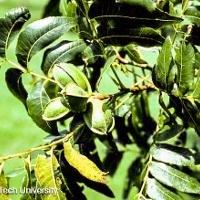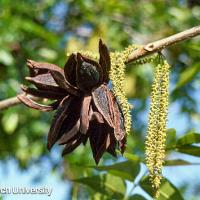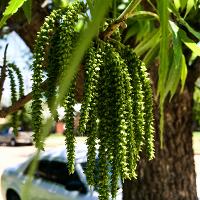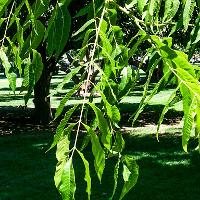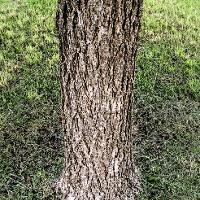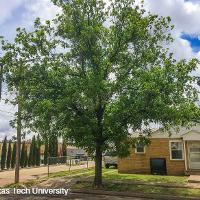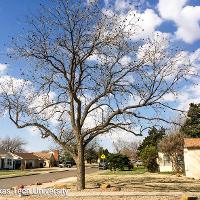Pecan
Carya illinoinensis
Deciduous-Trees
Pecan - the state tree of Texas - is a large, deciduous tree best suited for large sites. It tends to face issues with messiness and alkaline soils, but provides edible fruit and yellow Fall foliage.
(Detailed plant information can be found at the bottom of the page.)
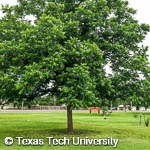
Carya illinoinensis Photo Gallery
Carya illinoinensis Plant Information
| Classification | |
|---|---|
| Scientific Name: | Carya illinoinensis |
| Common Name: | pecan |
| Family: | Juglandaceae |
| Suggested Uses: | orchard, park, golf course |
| Characteristics | |
| Height: | 70 - 100 feet tall |
| Foliage: | alternate, odd pinnately compound (9 to 17 leaflets), and deciduous leaflets arch back towards leaf bud looks like a roasted almond provides good yellow Fall color |
| Flower: | monoecious with male in catkins and females in spikes |
| Bloom Period: | Spring |
| Fruit: | edible nut in a 4-valve husk |
| Bark: | dark brown and becomes scaly with age |
| Environment | |
| Soil: | tends to develop Zn deficiency in alkaline soils |
| USDA Zone: | zones 5 - 9 |
| Care | |
| Maintenance: | drops fruit, leaves, and twigs throughout the year Zn deficiency can be corrected with applications of chelated Zn or foliar sprays |
| Pests & Pathology: | numerous insect and disease problems |
| Additional Notes: | state tree of Texas many outstanding cultivars which produce excellent fruit best if used on large sites despite limitations as a landscape plant, pecan is often desired for landscape use and is an interesting ornamental |
TTU Plant Resources
-
Address
Texas Tech University, Department of Plant and Soil Science, Box 42122, Lubbock, TX 79409 -
Phone
806.742.2838 -
Email
Melanie.Jackson@ttu.edu

